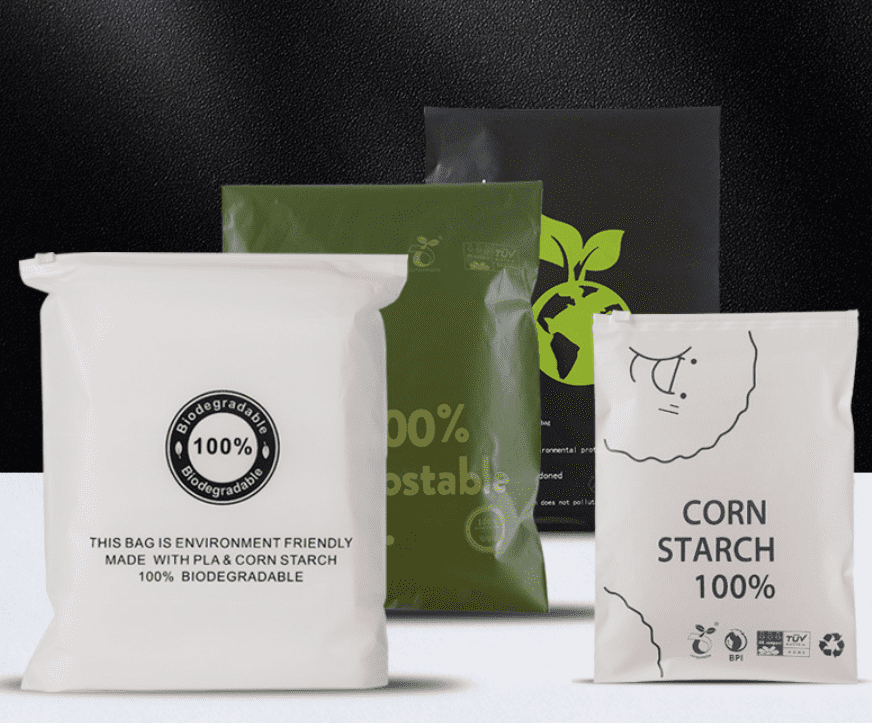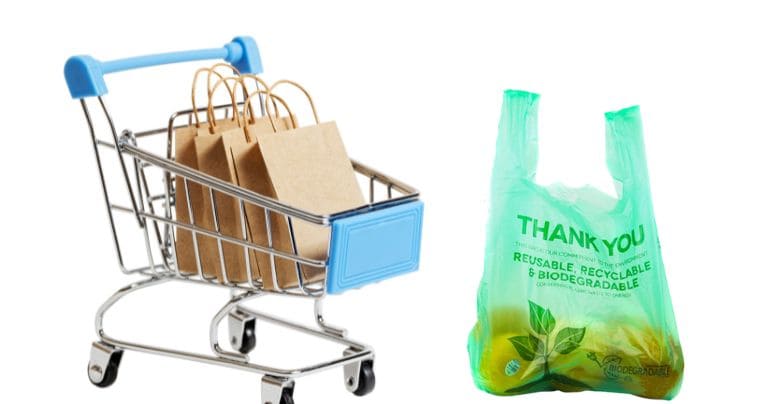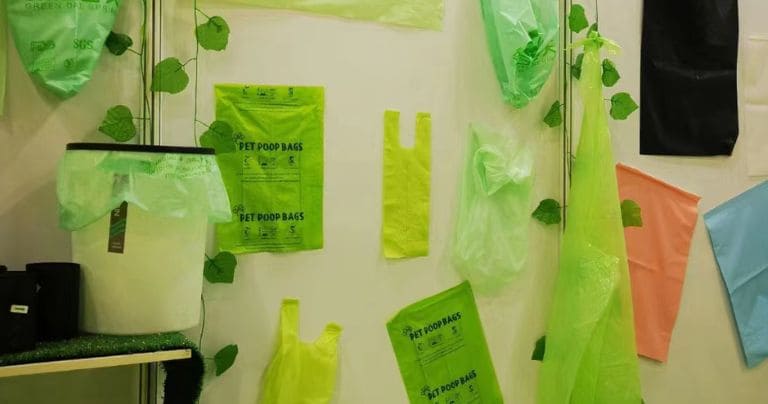Table of Contents
In our ongoing journey towards sustainability, one significant change is the shift from plastic to more eco-friendly alternatives. Compostable zipper bags are at the forefront of this change, offering an innovative solution to the plastic problem.
Compostable zipper bags are becoming increasingly popular as they offer a sustainable alternative to traditional plastic bags. They are made from materials that decompose naturally, reducing waste and pollution.
The transition to these eco-friendly options is not just a trend; it’s a crucial step towards a more sustainable future. Let’s explore why compostable zipper bags are the next big thing in sustainable packaging.

What Makes Compostable Zipper Bags Environmentally Friendly?
In my role as an advocate for sustainable packaging solutions, I’ve closely observed the rise of compostable zipper bags and their environmental benefits. These bags represent a significant advancement in our efforts to reduce plastic waste and its impact on our planet. Let’s explore what makes these bags truly eco-friendly.
Composition of Compostable Materials
Compostable zipper bags are primarily made from natural, plant-based materials like cornstarch, PLA (Polylactic Acid), and PBAT (Polybutylene Adipate Terephthalate). Unlike traditional plastics derived from non-renewable petroleum, these materials are sourced from renewable resources. This shift from fossil fuels to biomass is a critical step in reducing our carbon footprint.
The Biodegradation Process
The key factor that sets compostable bags apart from traditional plastic is their ability to biodegrade. These bags are designed to break down under the right composting conditions, turning into carbon dioxide, water, and biomass. This process significantly reduces the volume of waste ending up in landfills and oceans. It’s important to understand that biodegradation for these materials occurs under specific conditions – typically in industrial composting facilities that maintain the right balance of temperature, moisture, and aeration.
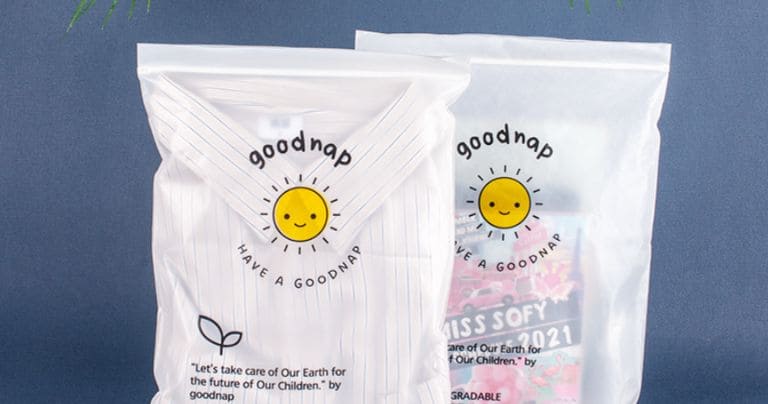
Reducing Plastic Pollution
One of the most pressing environmental issues today is plastic pollution. Traditional plastic bags can take hundreds of years to decompose, during which time they can cause severe harm to wildlife and ecosystems. Compostable zipper bags, however, break down in a fraction of that time, thereby contributing significantly less to long-term pollution.
Lowering Carbon Emissions
The production process of these compostable materials generally results in lower carbon emissions compared to traditional plastics. Since they are derived from plants, they contribute to a more circular economy – where the carbon released during decomposition is roughly equal to the carbon absorbed during the growth of the plants used to make them.
Encouraging Sustainable Practices
By choosing compostable zipper bags, consumers and businesses are taking an active role in promoting sustainability. This choice not only reduces the environmental impact of the products they use but also encourages more investment and innovation in eco-friendly technologies. As a professional in this field, I’ve witnessed a growing demand for sustainable products, which in turn drives the development of even better alternatives.
In conclusion, compostable zipper bags are environmentally friendly due to their renewable material composition, ability to biodegrade, reduction in plastic pollution and carbon emissions, and their role in promoting sustainable practices. As someone deeply committed to environmental sustainability, I believe that embracing these bags is a powerful step towards a greener future. It’s not just about replacing plastic – it’s about rethinking our approach to packaging and waste to create a more sustainable world.
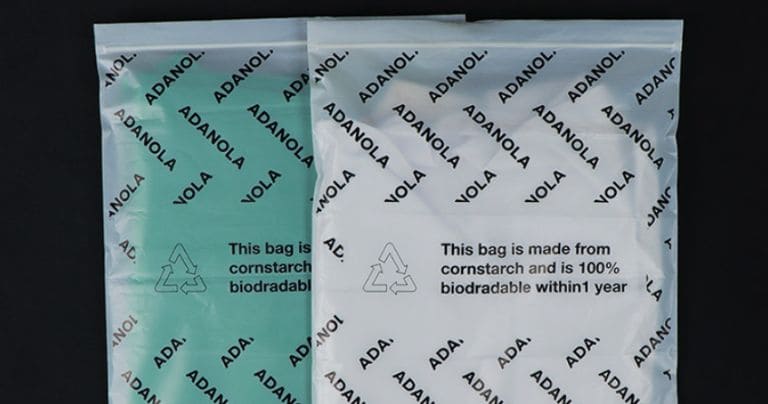
How Do Compostable Zipper Bags Compare to Traditional Plastic Bags?
In my professional journey within the sustainable packaging industry, I’ve often been asked how compostable zipper bags stack up against their traditional plastic counterparts. This comparison is crucial in understanding the shift towards more eco-friendly options and why it matters. Let’s delve into the key differences and what they mean for consumers and the environment.
Material Source and Composition
The fundamental difference lies in the source and composition of the materials used. Traditional plastic bags are typically made from polyethylene, derived from non-renewable resources like petroleum. On the other hand, compostable bags are made from renewable resources like cornstarch, PLA, and PBAT. This distinction is critical because it not only affects the biodegradability of the bags but also their impact on resource depletion and environmental pollution.
Biodegradability and Environmental Impact
When it comes to environmental impact, biodegradability is a game-changer. Traditional plastics can take hundreds to thousands of years to break down, and even then, they fragment into microplastics that continue to pollute the ecosystem. Compostable bags, in contrast, are designed to break down in a compost environment within a much shorter period – typically a few months. This rapid degradation means they contribute significantly less to landfill mass and are less likely to cause long-term environmental damage.
Landfill Space and Marine Pollution
In landfills, traditional plastic bags can occupy space for centuries, contributing to the growing waste management crisis. They are also a significant contributor to marine pollution, harming wildlife and ecosystems. Compostable bags, due to their ability to break down, alleviate some of these pressures on landfills and pose a lesser threat to marine life.
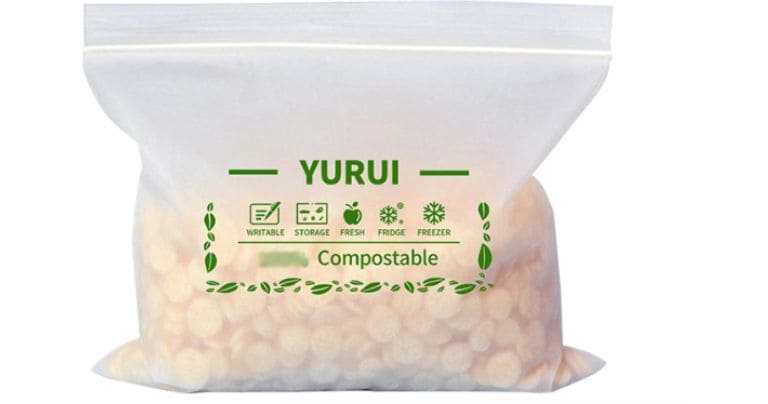
Carbon Footprint
Another aspect where these two differ is in their carbon footprint. The production of traditional plastics is energy-intensive and heavily reliant on fossil fuels, contributing to greenhouse gas emissions. While the production of compostable bags also has an environmental impact, it’s generally lower in terms of carbon emissions, especially considering the renewable sources of their raw materials.
Cost and Availability
From a consumer perspective, cost and availability are important factors. Traditionally, compostable bags have been more expensive and less available than plastic bags. However, as demand for sustainable products grows and production technologies advance, we’re seeing a decrease in costs and an increase in availability. This shift is crucial in making sustainable options more accessible to a wider audience.
User Experience
In terms of functionality, there’s a common misconception that compostable bags are less durable or versatile. However, advancements in material science have bridged this gap significantly. Modern compostable bags offer comparable strength, usability, and storage capabilities to traditional plastic bags, making them suitable for a wide range of uses.
In conclusion, while traditional plastic bags have been the norm for decades, compostable zipper bags present a compelling alternative that aligns with growing environmental concerns. They offer comparable functionality with the added benefits of being made from renewable resources, biodegradability, lower carbon footprint, and a lesser impact on waste management. As an expert in sustainable packaging, I advocate for the transition to compostable bags, not just as an eco-friendly choice, but as a crucial step towards a more sustainable future.
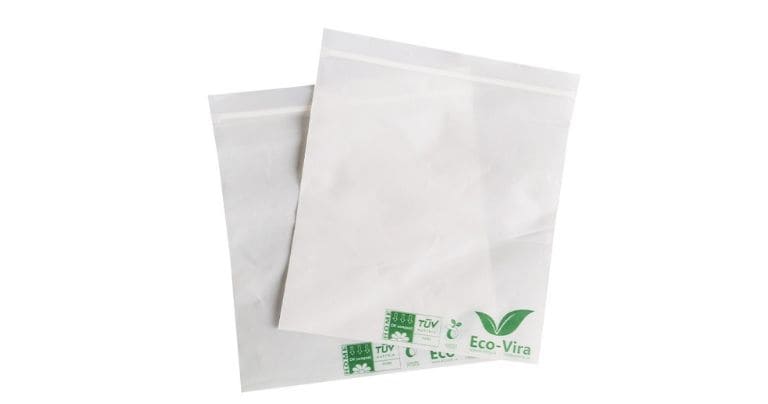
Are Compostable Zipper Bags Truly Compostable?
As an advocate and specialist in the field of sustainable packaging, I frequently encounter queries about the authenticity of compostable zipper bags’ compostability. It’s a valid question, especially in an age where greenwashing is a concern. Let’s break down the facts to understand what truly makes these bags compostable and how they perform in real-world composting scenarios.
Understanding Compostability Standards
First and foremost, it’s crucial to understand that compostability is defined by certain standards. A bag is considered compostable if it can break down in a composting environment within a specific timeframe, usually within 90 to 180 days. These standards are set by organizations like ASTM International or the Biodegradable Products Institute (BPI). Compostable bags should ideally meet these standards, and looking for certifications is a key step in verifying their compostability.
Certification and Verification
Certification by reputable bodies ensures that the bags have been rigorously tested and meet the criteria for compostability. This includes factors like the time taken to decompose and the absence of toxic residue post-decomposition. As a professional, I always recommend choosing bags with recognized certifications to ensure you’re getting a genuinely compostable product.
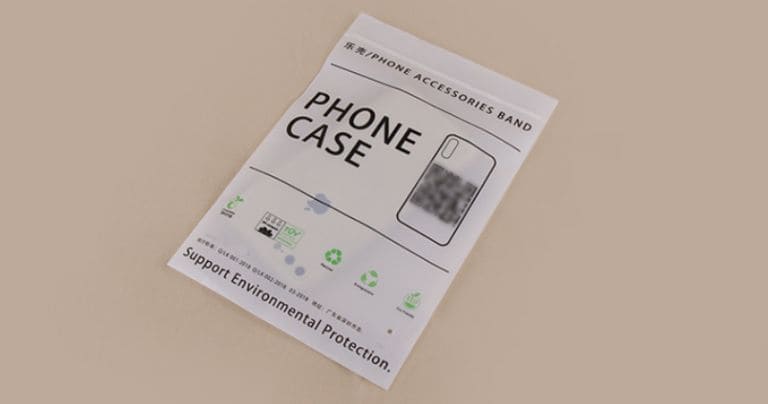
The Role of Industrial vs. Home Composting
Another important aspect is the distinction between industrial and home composting. Many compostable zipper bags are designed for industrial composting facilities, which have controlled environments optimized for rapid decomposition. These facilities maintain high temperatures and specific conditions that may not be replicable in a home composting setup.
Home Composting Challenges
While some bags are marketed as home compostable, the reality is that achieving complete decomposition at home can be challenging. Home composting environments vary greatly and often don’t reach the temperatures required for these bags to break down efficiently. Therefore, it’s important for consumers to understand where and how to compost these bags properly.
Material Composition and Breakdown Process
The compostability of these bags also depends on their material composition. Most are made from a blend of PLA, cornstarch, and other compostable polymers. In the right conditions, these materials should break down into carbon dioxide, water, and biomass, leaving no toxic residue. However, the breakdown process can vary based on the exact material composition and environmental conditions.
Environmental Impact Post-Composting
Lastly, it’s essential to consider what happens post-composting. True compostability means that the bags not only disintegrate but also contribute positively to the compost by adding biomass to it. The end product should be a nutrient-rich compost that can support plant growth, closing the loop in the lifecycle of the product.
In conclusion, while compostable zipper bags are a promising step towards sustainable packaging, their true compostability depends on meeting established standards, proper disposal in the right composting environment, and their material composition. As a professional in this field, I emphasize the importance of understanding these nuances to make informed choices about using and disposing of these bags. Compostable bags are indeed a viable alternative to traditional plastics, but their effectiveness hinges on proper usage and disposal.
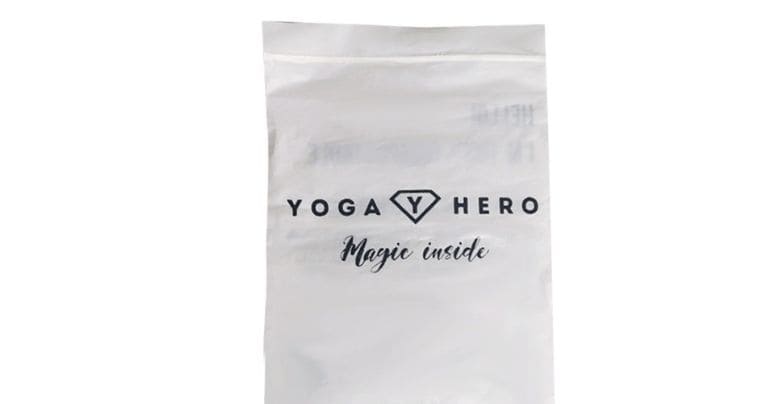
What Are the Innovative Uses of Compostable Zipper Bags?
In my extensive experience in sustainable packaging solutions, I’ve been particularly intrigued by the innovative and versatile uses of compostable zipper bags. These bags are not just an eco-friendly alternative to traditional plastics; they’re a multifunctional tool that can be adapted for various purposes, both conventional and unexpected.
Beyond Food Storage
Traditionally, zipper bags are known for their role in food storage. Compostable zipper bags excel in this area, providing an eco-friendly way to store leftovers, pack lunches, or keep produce fresh. However, their utility goes far beyond the kitchen.
Retail Packaging
One innovative use I’ve seen gaining traction is in retail packaging. Eco-conscious brands are increasingly turning to compostable zipper bags to package their products, from clothing to consumer electronics. This not only reduces plastic waste but also enhances the brand’s image as a sustainable and responsible business.
In Travel and Organization
Compostable zipper bags are incredibly useful for organizing items during travel. They can be used to pack toiletries, protect electronic devices from moisture, or keep small items like chargers and earphones secure. What makes them a better choice over traditional bags is their environmental friendliness, especially for travelers who are conscious about their ecological footprint.

Event Management
In event management, these bags are a boon for distributing items like event kits, promotional materials, or even food samples. They provide a sustainable way to handle materials, aligning with the growing trend of eco-friendly events.
Creative and Educational Uses
In the realm of education and creativity, compostable zipper bags have found a unique place. They can be used in classrooms for storing supplies or as part of educational activities about sustainability. Artistic projects often utilize these bags for material storage or as part of the artwork itself, emphasizing environmental themes.
Home Gardening
Home gardening enthusiasts have also found a novel use for these bags. They can be used to create small, compostable greenhouses for seedlings, or for storing garden supplies. Given their compostable nature, they integrate well with the gardening ethos of nurturing and respecting the environment.
Specialty and Niche Markets
Lastly, specialty markets such as organic stores, farmers’ markets, and health food shops are increasingly adopting compostable zipper bags. These markets cater to a clientele that values sustainability, making compostable bags an ideal choice for packaging specialty products.
In conclusion, compostable zipper bags offer a wide array of innovative uses that extend far beyond their traditional roles. From retail packaging to travel, event management, education, gardening, and specialty markets, these bags are proving to be versatile, functional, and environmentally friendly. As an expert in sustainable packaging, I see these bags not just as a product, but as a symbol of the shift towards more responsible consumption and an innovative tool in our quest for a greener planet.
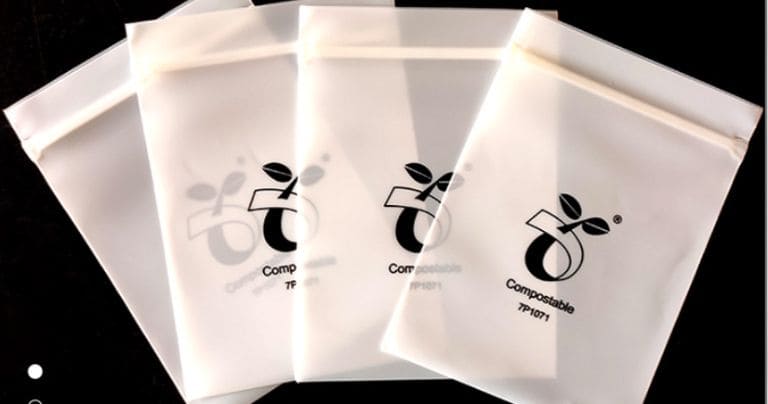
How Can Consumers and Businesses Transition to Compostable Zipper Bags?
In my professional journey through the world of sustainable packaging, I have witnessed and facilitated the transition of numerous consumers and businesses to compostable zipper bags. This shift, while beneficial for the environment, can come with its own set of challenges and considerations. Here’s how I recommend navigating this changeover effectively.
Gradual Integration into Daily Use
For consumers, the shift to compostable bags can start with integrating them into daily routines. Begin by replacing traditional plastic bags in specific scenarios, like grocery shopping or storing leftovers. This gradual approach allows for a smoother transition and helps in adapting to the different feel and functionality of compostable bags.
Educating on Proper Use
Understanding the unique characteristics of compostable bags is crucial. For example, they might have different storage requirements compared to plastic bags to maintain their integrity. Educating oneself on these aspects ensures that the bags are used effectively and to their full potential.
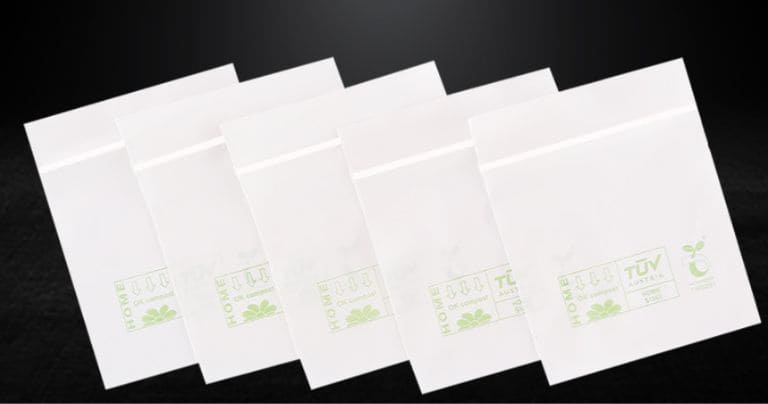
Businesses Embracing Eco-friendly Practices
For businesses, the transition is not just a matter of swapping out materials; it’s about embracing a broader eco-friendly practice. This change can start with an internal audit of how and where plastic bags are used and exploring how compostable bags can serve the same purposes.
Marketing the Change
Businesses can also use this transition as a marketing point. Informing customers about the switch to compostable bags, and the reasons behind it, can enhance a brand’s reputation as an environmentally responsible entity. This transparency and commitment can resonate strongly with eco-conscious consumers.
Supplier Relationships and Logistics
Establishing relationships with reliable suppliers of compostable bags is key. It’s important to ensure that these suppliers offer products that are genuinely compostable and meet relevant standards. Additionally, businesses need to manage the logistics of this transition, which may include training staff, adjusting storage spaces, and aligning new products with compostable packaging.
Cost Considerations
While compostable bags may be more expensive than traditional plastic bags, it’s essential to consider the long-term environmental savings and the potential for increased customer loyalty. Businesses should weigh these costs against the benefits of being seen as a green company.
Advocacy and Community Involvement
Both consumers and businesses can play a role in advocating for wider adoption of compostable bags. This can involve community initiatives, educational programs, or partnerships with local environmental groups. By promoting the use of compostable bags, they can help create a larger market demand, which in turn can lead to lower prices and more widespread use.
In conclusion, transitioning to compostable zipper bags involves a multifaceted approach, including gradual integration, education on use, marketing the eco-friendly switch, managing supplier relationships, and advocating for broader adoption. As an expert in this field, I believe that both consumers and businesses have a significant role to play in this transition, and their collective efforts can lead to substantial environmental benefits. This transition is not just about a product change; it’s about contributing to a larger movement towards sustainability.
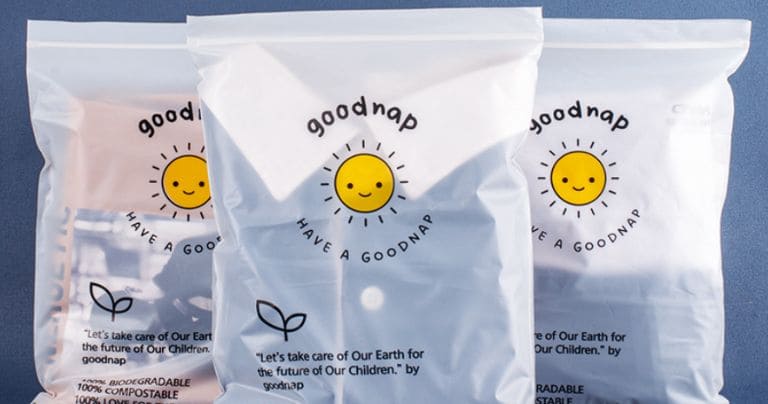
Conclusion
Compostable zipper bags are more than a passing trend; they represent a crucial shift in our approach to packaging and disposability. As we embrace these sustainable alternatives, we contribute to a healthier planet and a more responsible way of living.
